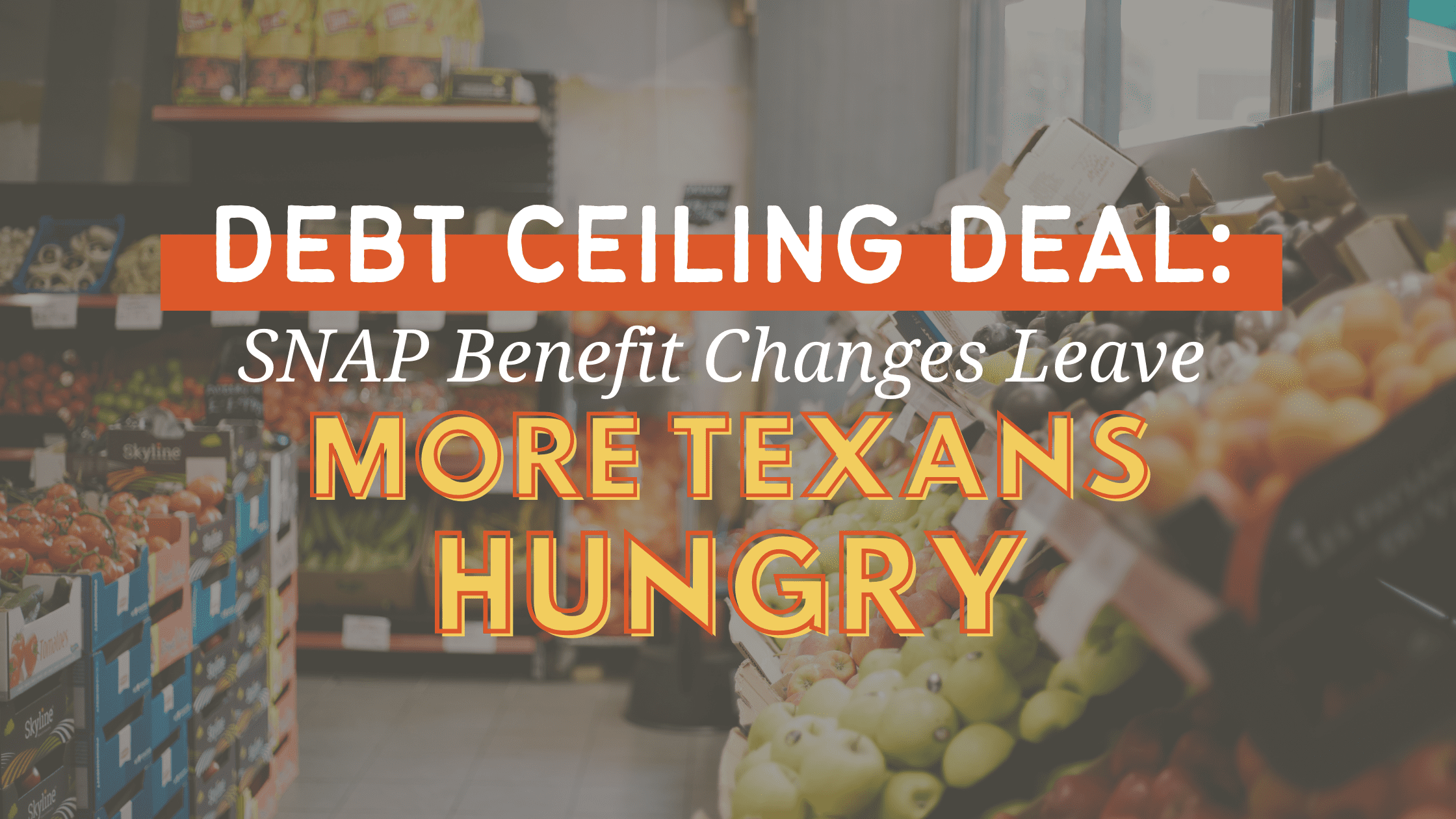The U.S. House and Senate recently passed a debt ceiling and budget package, negotiated by President Biden and House Speaker McCarthy, to avoid defaulting on the national debt. While it could’ve been worse, the deal changed policies that impact people with low incomes – including the Supplemental Nutrition Assistance Program (SNAP).
I felt the effects of SNAP firsthand while growing up in a single-parent household. Access to SNAP (formerly known as food stamps) meant we had more time as a family since my mom wasn’t working two or more jobs to cover the bills. While SNAP allowed my mom to provide meals for my sister and me, she was denied benefits, leaving little food left over for her after working 12-hour shifts in a factory, earning only $7.25 an hour.
SNAP is the most effective tool the U.S. has to prevent Americans from going hungry, yet this critical program was used as a bargaining chip in the debt ceiling agreement signed into law on June 3, 2023. Now, millions of Texans will have a harder time feeding their families. SNAP provides only about $6 a day in food aid per person, but it helps 3.6 million Texans access healthy and nutritious meals. During the pandemic, SNAP was key in responding to hunger demand and soaring food costs. SNAP’s impact on families is immeasurable, and it should never have been included in the debt negotiations, especially since the changes will not impact decreasing the national deficit.
What’s In the Debt Ceiling Agreement?
Currently, most adults aged 18-49 without children in their homes can only receive SNAP benefits for three months in a three-year period. The only exceptions are for adults who can consistently document that they are working or participating in a job training program for 20 hours per week, or they qualify for an exemption, like having a work-limiting disability. This reporting requirement is especially difficult for workers in low-wage jobs with fluctuating hours and no benefits. People in retail, food service, home health care, or doing gig jobs often have little control over their schedules and can struggle to document the requirements. Black and Hispanic/Latino Texans are disproportionately likely to work these unstable low-wage jobs and risk being denied SNAP.
Under the debt ceiling agreement, work-reporting requirements will now extend to include adults ages 50-54. As a result, nearly 750,000 adults nationwide and 44,000 adults in Texas are at risk of losing benefits. This population is also more vulnerable to age-based job discrimination, and many have limitations that make them unable to work physically demanding jobs.
The debt ceiling agreement also includes new exemptions from reporting – people experiencing homelessness, veterans, and former foster youth are exempt from work-reporting requirements. Although this is a positive development, we still need to make sure Texas implements these exemptions in a straightforward way so people can actually qualify. Even more onerous documentation requirements will deny Texans the help they need.
We cannot continue to say hunger is an issue and then attack the programs that feed families. The money the federal government pours into SNAP is cycled back into the economy as families purchase food. SNAP directly benefits our economy and the health and well-being of Texans. Attacking programs like SNAP does not save the U.S. money; it only further puts families at risk of going hungry – like mine.
